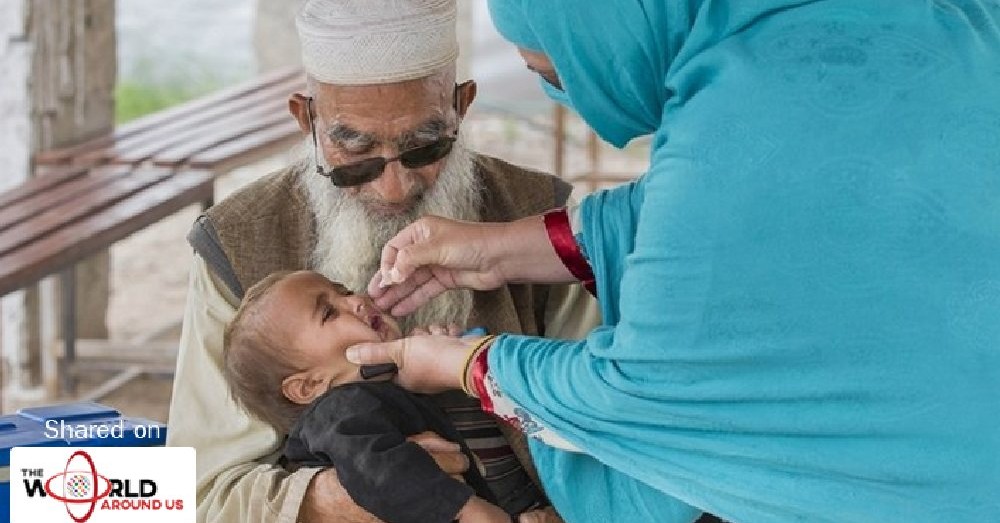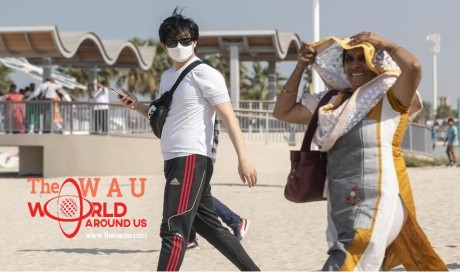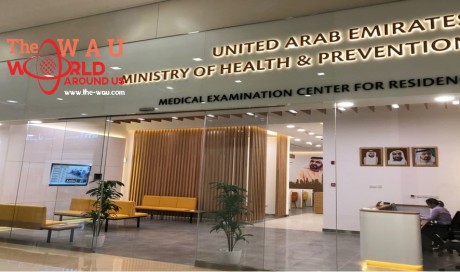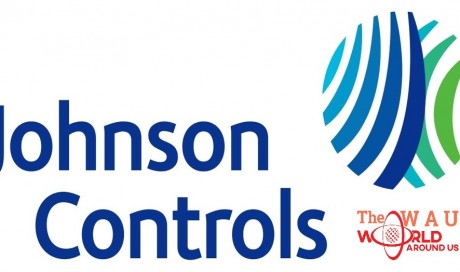DUBAI: Pakistani expatriates must learn more about polio to ensure international efforts, including those made by the UAE, to eradicate the disease are effective, a leading aid worker has said.
Many Pakistanis – particularly those from Khyber Pakhtunkhwa province, which is most affected by the disease – remain unaware about the full extent of polio’s dangers, said aid worker Ali, who was visiting Dubai to help educate the community.
The millions spent on education efforts will not be enough if Pakistanis in the UAE do not push their families to get their children vaccinated, said Ali, 34.
He has worked in Attock city in Pakistan for more than a decade, trying to rehabilitate the polio-affected population.
Ali found it "very alarming" that many Pakistanis in Dubai, especially Pashtuns and those from Khyber Pakthunkhwa, did not know about the virus.
"It is so unfortunate that the most affected community is the least informed," he said. "Such level of unawareness is very alarming.
"They consider this deadly disease like normal flu or fever. They don’t realise that even if one child gets the virus in the village, the whole village, especially children, can be affected."
He worries that if polio is not eliminated from Pakistan by the end of the year, his countrymen may have to face travel bans stopping them visiting and working in places abroad.
"A few people’s negligence would lead to major crises for people who are working here and supporting their families back home," Ali said.
About 700,000 Pashtuns are among the 1.4 million Pakistanis in the UAE, according to the Pakistani Khyber Wing, part of the Pakistan Association Dubai.
Most are blue-collar workers in low to middle-income jobs.
"It is time to create awareness among those who are living far away from home, yet playing a crucial role their family welfare and decision making," said Shahsawar Bangash, president of the PKW who organised Ali’s meeting with the community members.
Mr Bangash, 42, said it was crucial to educate Pashtuns, who are usually their families’ breadwinners and can convince them to get their children vaccinated on time. "If on one hand, the UAE Government is doing so much for polio eradication in our country, then we have to come forward and play our roles at least in creating awareness," the businessman said.
The UAE has long played a pivotal role in supporting global polio eradication efforts. In 2013, Sheikh Mohammed bin Zayed, Crown Prince of Abu Dhabi and Deputy Supreme Commander of the Armed Forces, pledged to provide US$120 million (Dh440m) towards the goal.
More than 15.5 million children across Pakistan’s highest-risk districts received oral polio vaccine through the UAE Pakistan Assistance Programme, as part of the Emirates Polio Campaign.
In July this year, the programme announced a further Dh30.4m to continue the campaign across Balochistan, Khyber Pakthunkhwa and Sindh provinces, and the Federal Administered Tribal Areas.
Fourteen cases of polio have been reported in Pakistan this year, says the World Health Organisation, which has instructed the country to give at least one dose of polio vaccine to Pakistanis travelling out of the country.
S Bakhtiar, who attended the meeting, said his family had suffered because of negligence about polio vaccination. His brother had the disease 10 years ago.
"I have seen the horrors of polio. My family didn’t realise that not getting one vaccine can destroy the life of my brother," said Mr Bakhtiar, 28, an accountant in Dubai.
He said that even though he was living abroad, he did not realise its significance.
"Those working in Dubai can play an important part in making sure that not just children in our family, but every child in the village gets vaccinated," he said. "The negligence of one person can jeopardise the lives of many."
Share This Post












